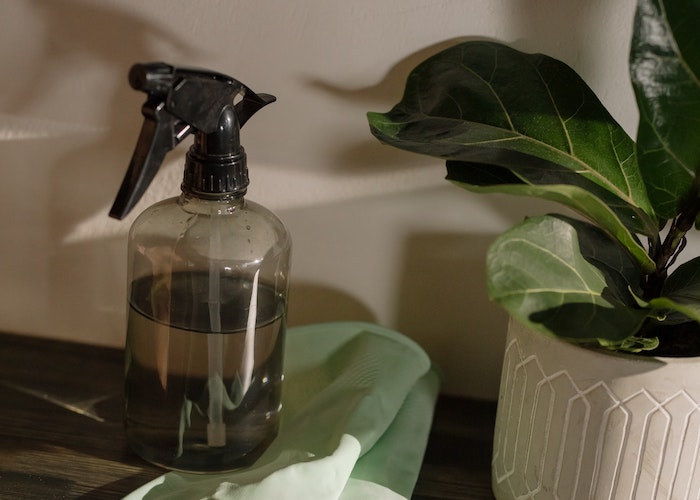How Rich People Actually Treat Their Hotel Rooms, & Other Confessions From A Former Housekeeper

I wouldn’t have thought that throwing back the covers on an older lady while she slept would have contained a valuable life lesson. But it did.
First, I learned that some people are very heavy sleepers, and I shouldn’t assume several knocks and shouts of “housekeeping” would wake everyone up. Second, I now know that a lumpy bed doesn’t always contain a pile of pillows — sometimes it’s a person. Finally, I figured out that embarrassing the hell out of yourself at work can create some of the best memories that you wouldn’t change for the world.
Being a housekeeper for a year and a half when I was a teenager taught me a hundred valuable life lessons, more than I can contain in a single essay, but here are a few.
Cleaning someone else’s toilet makes you humble.
Most of the jobs I have worked required me to scrub toilets: at a sandwich shop, as a barista, as a home health aid, while cleaning houses with my grandmother. It wasn’t until I started working in an office that I no longer had to do that because other people took care of it, which honestly was weird for me.
Cleaning a hotel room after a raging party, or after a little girl pees the sheets, slaps you with a giant dose of humility. And everyone could benefit from that at some point in their lives. When I transitioned into office work, I always tried to acknowledge the cleaning staff and the work they did. I’ve been there, and people tend to overlook you. But without having worked that kind of a job, I might not have bothered.
People take invisible labor for granted.
We rarely received tips as housekeepers. Most guests — and I don’t blame them — packed up their bags and peaced out for the day. It was easy not to think about the person coming in after them with aching feet to change the sheets, wipe down the showers and vacuum up the crumbs from the blueberry muffin their two-year-old destroyed.
But when we did get a tip, even if it was just a couple of dollars, it truly made our week. It wasn’t just about the money — it was a small but meaningful acknowledgment of our hard work. Even though we didn’t see most guests in person, leaving a few bucks was an acknowledgment. As a 16-year-old, this experience opened my eyes to the endless amount of work that goes on even though it’s not public-facing.
People take this invisible labor for granted. Think about the truckers, the late-night janitors, or the newspaper delivery drivers. My Sunday paper doesn’t just appear on my driveway by the time I wake up. Someone brings it. It’s good to remember to recognize all the people doing their jobs, even if we don’t see them.
A “bad job” makes the best stories
You know how terrible vacations create amazing stories that you love sharing later? It’s the same with jobs. The worst-seeming moments are the ones you relish telling over and over again in the future. Like the time I threw the sheets back on a sleeping woman. What makes that story even better is that she didn’t wake up even as I yelped and ran out of the room — and I worried she was dead. (She wasn’t). It’s one of my favorite stories to relay now.
You also get super close with your co-workers when working one of these jobs. Going through bizarre or awkward experiences with people at work is the fastest way to make fast friends. When I was a housekeeper, I worked with several of my high school friends, and we still talk about the things we saw to this day. My high school life would have been much more boring without these crazy moments.
Guests who treat you like a human are rare gems.
Some guests don’t acknowledge you when you’re a housekeeper until they need something from you. This is fine, and sometimes it’s welcome if you just want to get your rooms cleaned. But other guests openly turned their noses up at us — it seemed like they were judging us for the job we held. To be fair, our uniform consisted of dingy pickle-green scrubs that were a few sizes too big. But still. My friends and I were white, too, so I can only imagine the reactions you might receive if you were a person of color.
However, you also had the guests who looked you in the eye when they spoke to you. Who asked you about yourself. Who knew your name by the end of their stay. These were the people who made you feel human. As a sensitive teenager, going through this experience made me realize how much you can impact a stranger’s day. Although I don’t always succeed, I try my best to make the people I interact with feel seen.
Working as a housekeeper was nuts. But I’m so glad I experienced it. I learned to be more humble, to remain open to all the experiences the world wants to throw at me, and to treat other people with respect. Now I know that a job doesn’t make the person, and neither do dingy green scrubs.
This article was taken from an episode of The Poor Me Podcast, which is hosted by the writer. The show explores all aspects of feelings about money.
Tiffany Verbeck is a personal finance freelance writer, editor, and podcaster. She produces and hosts The Poor Me Podcast, a weekly show that explores feelings about money. Find her full portfolio at www.tiffanyverbeck.com and connect with her on Twitter at @tiffanyverbeck.
Image via Pexels
Like this story? Follow The Financial Diet on Facebook, Instagram, and Twitter for daily tips and inspiration, and sign up for our email newsletter here.




